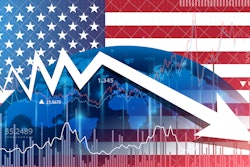
A survey from LeanDNA and Wakefield Research underscores the growing recognition of AI's critical role in supply chain management.
In fact, a majority (92% of executives, 100% of supply chain leaders) agree that AI-driven insights are essential for predicting and preventing disruptions. Optimism for ROI is high, with most (87% of executives, 89% of supply chain leaders) expecting a positive return on AI and machine learning investments within one to two years. Notably, 39% of executives and 34% of supply chain leaders anticipate ROI even sooner.
“The C-suite and supply chain agree that supply chain professionals and business leaders expect gains from investing in AI tools, digital synchronization, and optimization. However, it also shows that they differ in what they are most concerned about if improvements are delayed. Getting in synch on the risks and reducing friction between the two groups will allow their companies to grow faster,” says Andy Ellenthal, CEO of LeanDNA.
Key takeaways:
- C-Level executives are especially bullish on the immediate and near-term ROI from AI. In fact, executives are 60% more likely to say they have already seen positive ROI or expect to in the next 6 months than supply chain leaders (24% of executives, 15% of supply chain leaders). This shows that the C-suite is even more ready and receptive to AI and is likely to pressure supply chain leaders to move faster.
- Supply chain leaders are actively leveraging AI and machine learning, with 50% citing it as a top strategy for improving reliability. Other key initiatives include diversifying the supplier base (45%), implementing supply network synchronization (39%), and upgrading data infrastructure (39%).
- Many companies are making strides toward full digital supply chain synchronization, with 57% of executives and 51% of supply chain leaders reporting steady progress. However, full synchronization remains elusive, achieved by only 19% of executives and 18% of supply chain leaders.
- Both groups acknowledge the risks of delaying supply chain innovations, including production disruptions, market fluctuation responsiveness, inventory costs, reputational damage, regulatory compliance, and competitive disadvantage. However, priorities differ. Executives are most concerned about production disruptions (53%), while supply chain leaders prioritize inventory costs (53%), reputational damage (53%), and regulatory compliance (50%).
- To maximize growth, companies must shift from reactive to proactive logistics planning. A majority of executives (77%) and supply chain leaders (78%) believe that their organization’s supply chain logistics need to be more proactive to maximize growth. Only a small fraction believe their logistics are already sufficiently proactive.
















